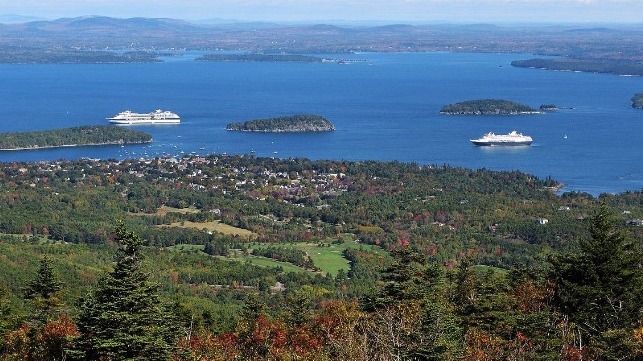Bar Harbor Closes its Port to Cruise Ships for 2020

The town council for Bar Harbor, Maine has decided to ban further cruise ship calls through the end of 2020 due to the continued risk of COVID-19, extending a local moratorium that expired July 1.
Large cruise operators have already shut down North American cruising through mid-September, so the order will have no effect on mega-vessels. However, one small-ship company - American Cruise Lines - had proposed to restart its operations and call in Bar Harbor beginning in July. American's vessels are small enough that they are not covered by the U.S. Centers for Disease Control "no sail" order on large cruise ships, and the line has been hoping to restart its operations in New England.
In a council meeting Tuesday night, the town's leaders conveyed residents' concerns about the resumption of cruise ship arrivals, and some suggested that the port calls could hurt public perception of Bar Harbor's overall COVID-19 safety.
“I don’t think the risk is worth the reward,” said Bar Harbor Councilor Matt Hochman, speaking to the Bangor Daily News. “I don’t think 2020 is the year for it.”

that matters most
Get the latest maritime news delivered to your inbox daily.
American Cruise Lines' success in carrying out a summer restart has been limited in other markets: it has suspended scheduled river cruises on the Mississippi for the month of July, and its Columbia River sailings have been deferred due to state-level restrictions.
On Tuesday, American Cruise Lines also canceled its 2020 season in Southeast Alaska “because the recent spike in [coronavirus] cases around the country has renewed concerns and poses potential complications." Town councils in the destination ports of Haines and Skagway previously voted against accepting a port call for the firm's first Alaska sailing of the year. Likewise, the Alaska Municipal League - the association representing Alaska's local governments - had recommended “a moratorium on small ship cruising until mutually agreed-upon protocols can be finalized between the industry and the communities.”
